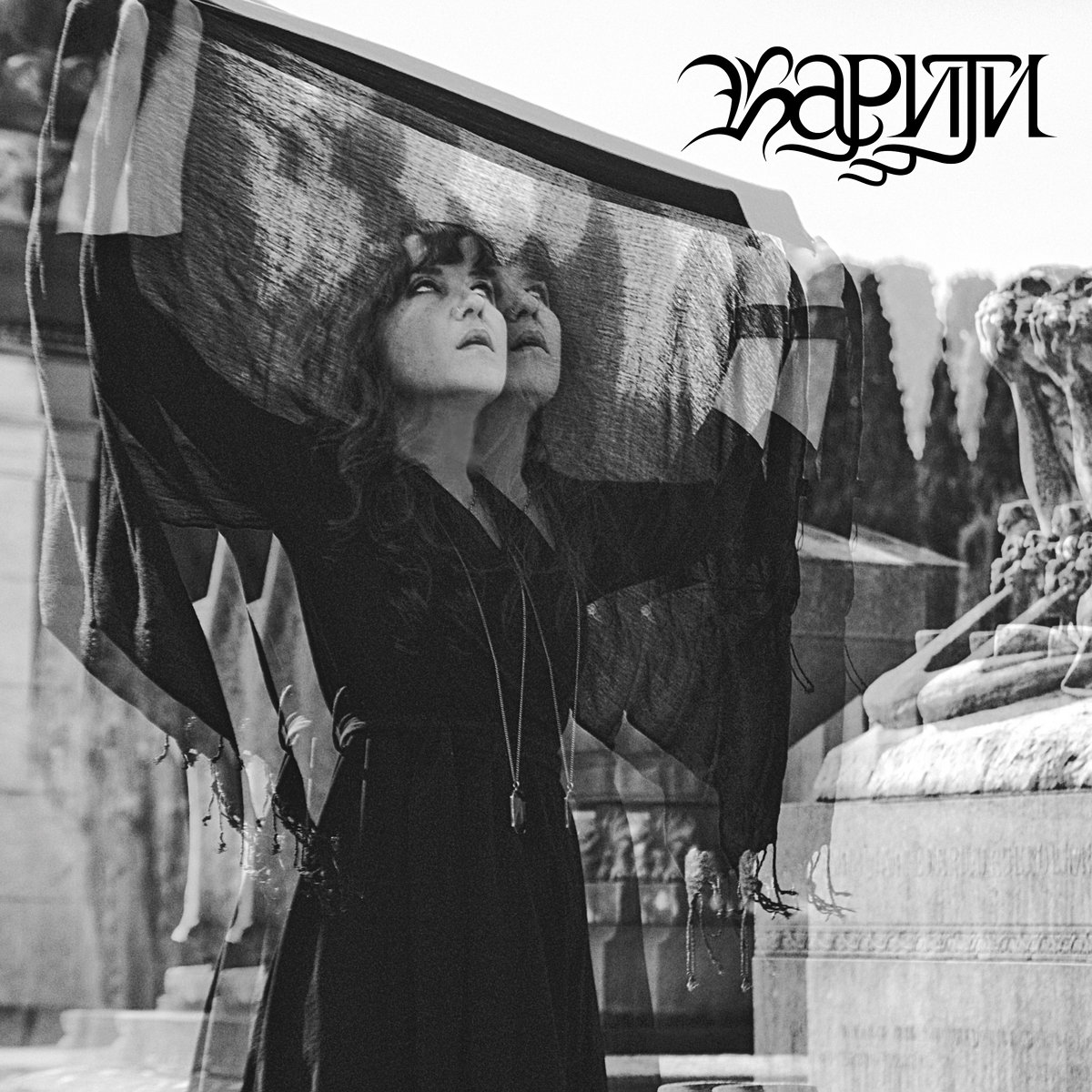Malokarpatan – Old World Child Sacrifice, New World Music
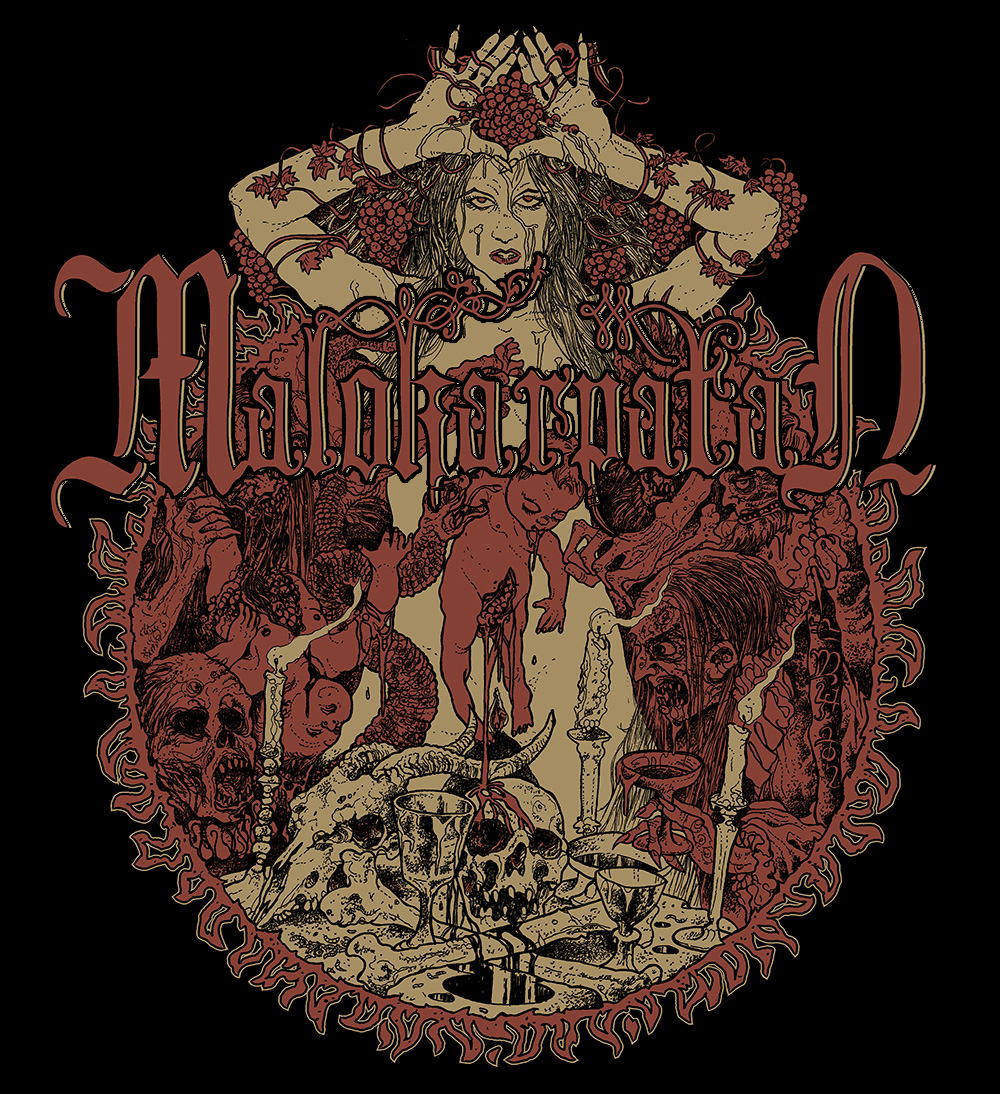
Been awhile since I slammed an interview, but this one was worth it. As you know, I don’t bother asking questions when bands are boring, and this pickiness has really increased site draw over the past few months so hey, must be doing something right by being all cocky and stuff. Malokarpatan released their first album this year, and though it was highly unique, I still found it lacking. But that didn’t mean I didn’t realize the greatness therein, which is why I decided to send an email to the guitarist and backing vocalist, Adam, to learn more about the band and its future, because there’s going to be big things coming from these guys, or at least there should be. If not I’ll criticize them later, but for now let’s assume that’s not going to happen as we learn more about this excellent example of the beauty of Eastern European metal, in particular Slovakia. And a quick thanks to Robert A van Ritter for the awesome header image, which is the band’s newest shirt design (slightly altered by me for the site and for promotion purposes on Facebook).
Deaf Sparrow – How did you get started in music in general? Always curious about that, feel free to talk about any influences, people usually like to hear about a band’s background, but I love when it goes beyond the usual “this band influenced me, etc.” Chilean thrash master Demona, for example, was literally raised on thrash metal when she was a child. What about you guys?
Adam – I can’t speak for the other members here, so I’ll just give you my personal story. I’ve been lucky to have a quite rocking family background, so my story goes far back into early childhood. My father was a 70s rocker, so he introduced me and my brother to classic stuff like Led Zeppelin and Deep Purple. Also, my older brother developed an interest in metal music in the early 1990s and me being the younger one, somehow I had nothing better to do than to follow in his direction. So, at a time when I was thrilled by the Teenage Mutant Ninja Turtles series opening song, I was also exposed to albums like From Beyond by Massacre or Slayer’s Haunting the Chapel. I was a weird kid, so while music as extreme as this would probably scare the hell out of most people my age, I thought it was incredibly cool. Of course, some bands gave me the creeps, but that feeling of fear and darkness only made metal more attractive.
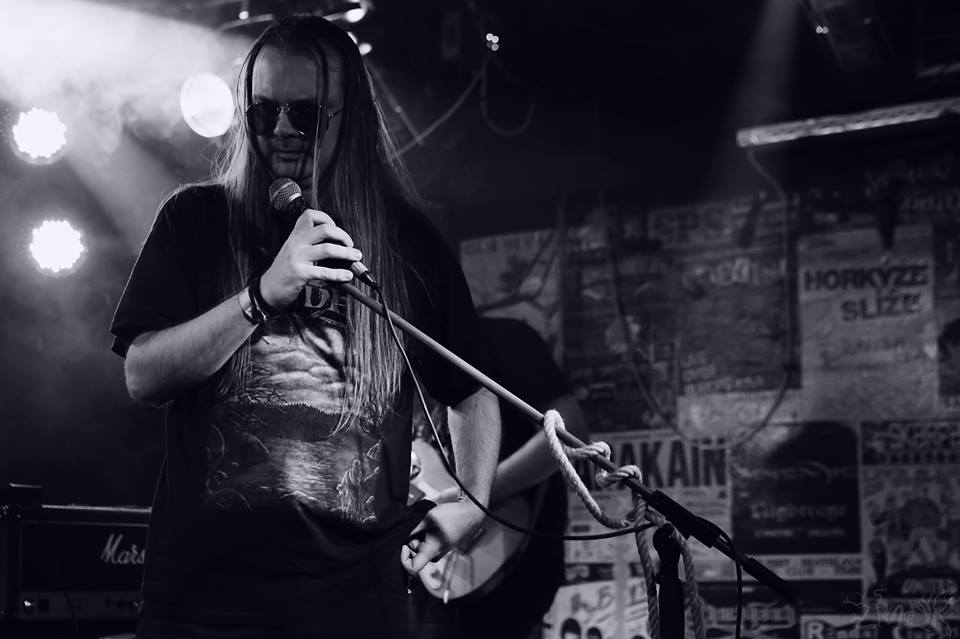 I remember some funny stories from this time like drawing logos of imaginary metal bands, while other, less demented kids were busy drawing animals and flowers. At the time here in (Czecho)slovakia, metal was rather popular, as everything “western” and “forbidden” was sought for after the 1989 revolution. You could easily buy metal albums even in some mainstream stores. This didn’t last too long, but it’s important to know that circumstances like this would lead random young kids like me and my brother to something so… outlandish. I’ve remained listening to metal throughout my life, even though I’ve had phases when I was tired of it all and spent time exploring different music genres. Naturally, my taste has also developed with age, but even after all those years, I still consider black metal to be the most creative and fascinating, because it has a million different faces and is far more friendly to an highly individual approach. As I get older, I listen more and more to classic metal, especially from the early 80s when it was still innocent and booming with creativity – this era influences me a lot in Malokarpatan. I also listen to many kinds of non-metal music ranging from 70s rock, spiritual jazz, 80s synthipop, through experimental composers like Igor Wakhévitch to exotica records from the 50s & 60s. Anything atmospheric and eccentric without being pretentious usually works for me.
I remember some funny stories from this time like drawing logos of imaginary metal bands, while other, less demented kids were busy drawing animals and flowers. At the time here in (Czecho)slovakia, metal was rather popular, as everything “western” and “forbidden” was sought for after the 1989 revolution. You could easily buy metal albums even in some mainstream stores. This didn’t last too long, but it’s important to know that circumstances like this would lead random young kids like me and my brother to something so… outlandish. I’ve remained listening to metal throughout my life, even though I’ve had phases when I was tired of it all and spent time exploring different music genres. Naturally, my taste has also developed with age, but even after all those years, I still consider black metal to be the most creative and fascinating, because it has a million different faces and is far more friendly to an highly individual approach. As I get older, I listen more and more to classic metal, especially from the early 80s when it was still innocent and booming with creativity – this era influences me a lot in Malokarpatan. I also listen to many kinds of non-metal music ranging from 70s rock, spiritual jazz, 80s synthipop, through experimental composers like Igor Wakhévitch to exotica records from the 50s & 60s. Anything atmospheric and eccentric without being pretentious usually works for me.
DS – What kind of bands were any of you in before getting together?
A – Remmirath was sort of a “main band” for me and two other Malokarpatan members. After changing the band name from a previous incarnation that didn’t record anything worthwhile except for a few amateurish demos, we recorded only three releases during the 10 year period of 2005-2015. First one was a demo that was still strong on 90s black metal nostalgia, although there were already some more quirky elements. Then a debut album in 2008 which was kind of a cross between atmospheric black metal and multi-genre experimentation. You know when bands go through that stage when they think metal isn’t good enough for them anymore (Norway in the late 90s/early 00s was exactly that) – this was when we went through that phase and the results were, well some of it still sounds good to me now, some of it makes me cringe – especially our ostentatiously non-metal image, haha. But it was an authentic representation of how we were at that time and it certainly didn’t make us popular in the local scene. The, so far, last album Shambhala Vril Saucers was released in 2015 and on that one, we decidedly went into a completely non-listener friendly direction. It was a really hard work to record it and I’m pretty damn proud of it despite of it not getting any attention at all. I wanted it to sound like a surrealistic movie (Jodorowsky was certainly an influence) where you never know what to expect next. So it has literally anything from metal, through spaghetti western music and Tibetan chanting to noise and electroacoustic improvisation. It’s not some random hipster noodling though, the album has a concept and everything works as a part of the great whole. We plan to make another album, but it may take several years like last time. It’s not easy to compose and record this kind of music and I can’t imagine a label giving us studio money for that.
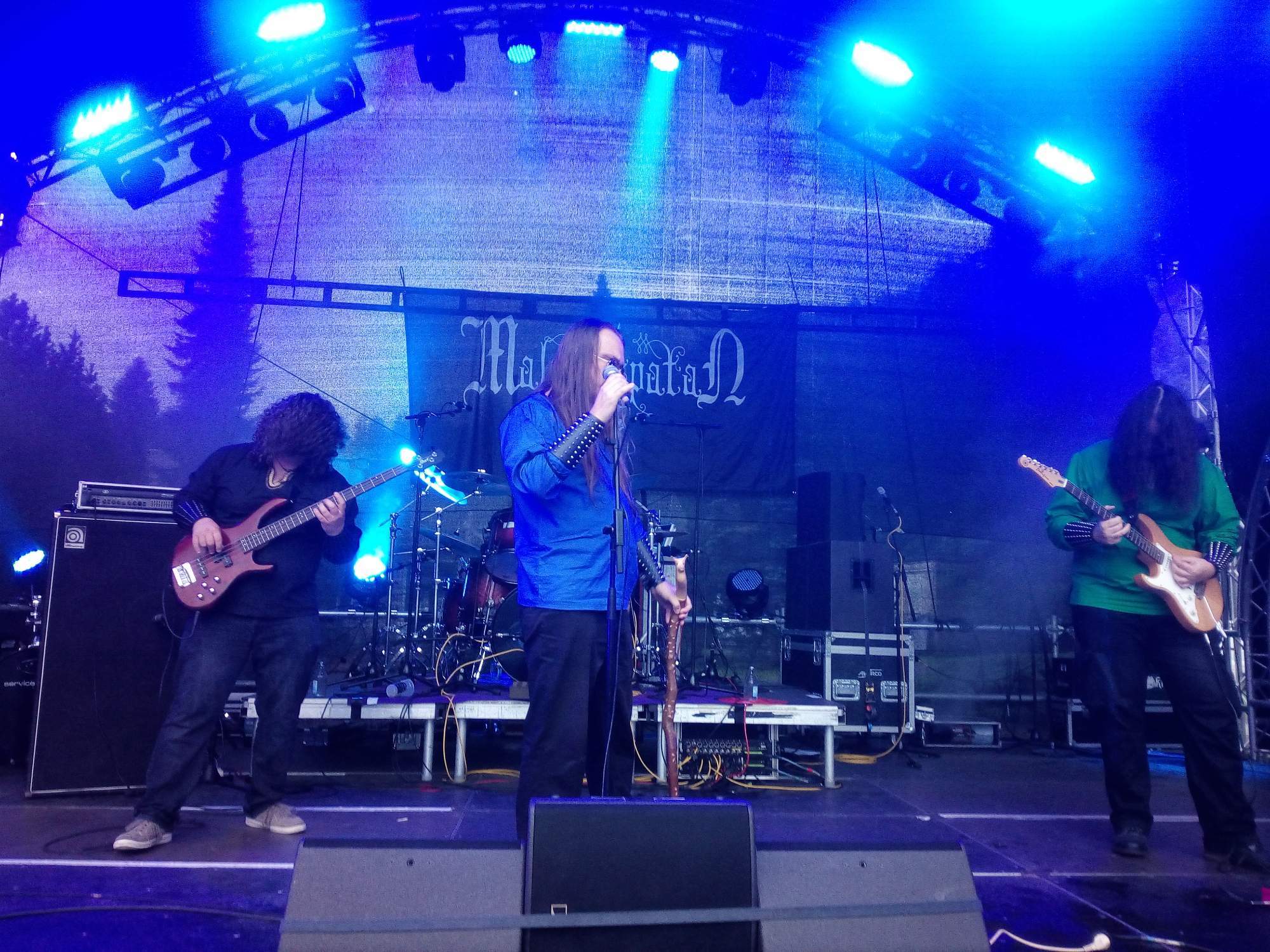 Temnohor is a one man band of our singer/frontman. I’d recommend it to people who are into conservative underground black metal in a strictly old school vein. More early 90s than 80s though. Temnohor told us he doesn’t want to make any new music with this band anymore as he’s satisfied with the two albums he did, but I hope he’ll revive it in the future. It’s not for everyone, but for me it’s special because he’s a long time friend of mine and I know very well the peculiar concepts he had for it, some of those were actually an inspiration for Malokarpatan too – especially the local West Slovak dialect he uses for lyrics.
Temnohor is a one man band of our singer/frontman. I’d recommend it to people who are into conservative underground black metal in a strictly old school vein. More early 90s than 80s though. Temnohor told us he doesn’t want to make any new music with this band anymore as he’s satisfied with the two albums he did, but I hope he’ll revive it in the future. It’s not for everyone, but for me it’s special because he’s a long time friend of mine and I know very well the peculiar concepts he had for it, some of those were actually an inspiration for Malokarpatan too – especially the local West Slovak dialect he uses for lyrics.
Krolok is a solo project of another Malokarpatan member HV. Musically, it’s in the vein of atmospheric 90s black metal from around 93-95. Atmospheric in the literal sense, no overdone keyboard cheese as someone might expect for that sub-genre. It might appeal to people who like the first 2 Satyricon albums, for example. A full-length album has been long in the works and can be expected this or next year. Krolok did a split with Temnohor as well.
Finally there’s Algor, a band where our drummer plays since the late 90s and basically one of the few Slovakian black metal bands that some people know abroad. Their early stuff was rather raw black metal in the old Darkthrone vein, with some Slavic spirit added to it. A few years ago they came up with a new album that, while still being black metal, goes into a more complex and progressive direction.
DS – Checked out some of this stuff, which sadly I never heard of before. Pretty impressive background, perhaps it’s possible to say you’re the only quasi-supergroup I’ve ever enjoyed enough to care hahaha. So you already hinted a bit about it, but let’s get to the details. How did Malokarpatan form and why?
A – It sounds odd now in retrospect, but it first came to life as my solo project. I’ve made other music before with different bands and projects, but I’ve had these simple old school sounding songs hidden in my shelf and felt that I should finally make a recording out of them. Some of those compositions are pretty old – from the early-to-mid 2000s, which also explains how certain songs on the album sound different to others. We started recording it very spontaneously in late autumn 2014 with HV, whom I pretty soon decided to include on the recording as a bass player (it was still just a project in this phase and since I had no need for a live line-up yet, I just let him record whichever instrument he wanted to try out). Then we called up another old friend, Temnohor (who also had his own solo one man band with two albums released). When I decided for an album concept based upon the peculiar local culture of Western Slovakia, he was the most logical choice for a singer, because he already had this influence strongly present in his own band’s lyrics. Somewhere along the way, we became a full-time band consisting of 5 people this year. This was also influenced by offers to play live. Anyway, to sum up the elementary reasons for forming Malokarpatan: I wanted to pay homage to both musical traditions (when it comes to metal) and the cultural traditions of my own homeland. These two themes merged together very well and I am very excited about the direction we are going in right now.
DS – Here’s one, what about the choice of the name, what’s the origin? A favorite question of mine, especially in this case since I know Polish, Ukrainian, and Russian, and I can read a bit of the other languages. I assume it’s from The Little Carpathians, which fits your image, but tell me all you got.
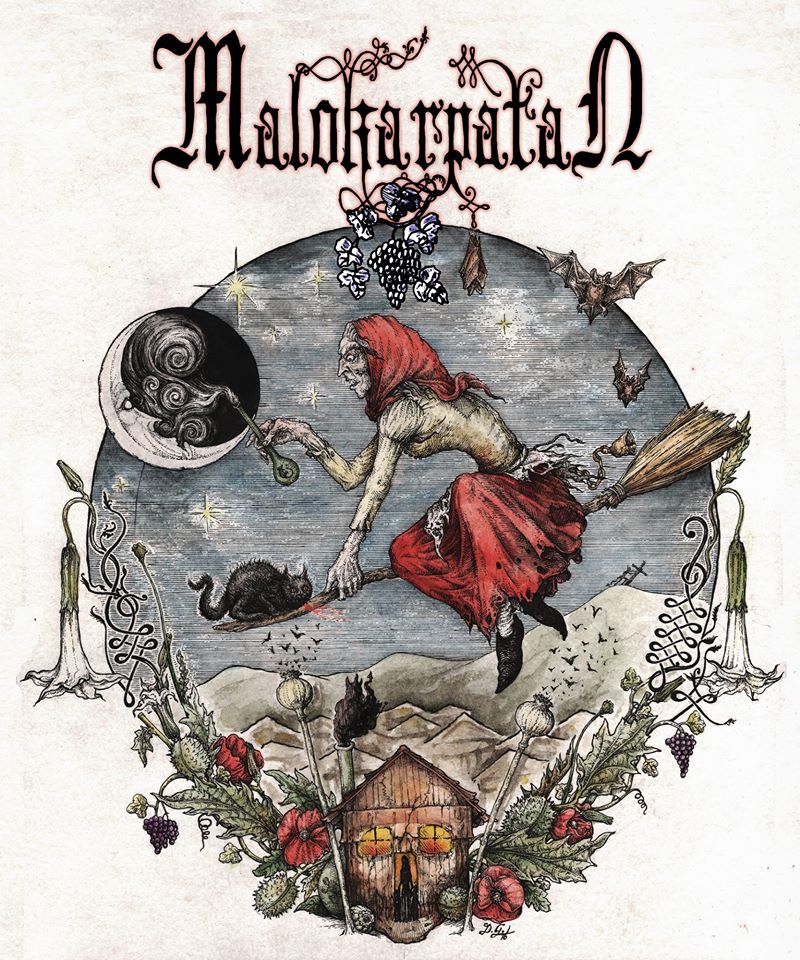 A – Malokarpatan literally means an inhabitant of the Little Carpathians – Malé Karpaty in our language. This geographic position is of great importance to our concept and it goes deeper than one might think. The Little Carpathians are a place of ancient history reaching back to the Stone Age, there are places in the hills where ritual cannibalism and child sacrifice was practiced thousands of years ago, we have several Gothic castles here including the infamous Čachtice Castle of Elizabeth Bathory, etc. We also have an old viticulture tradition with several kinds of wine being produced near the hills – this is also something we pay homage to in our lyrics. I believe that in the strongly globalized and uniform world of today, maintaining and promoting your cultural identity is an important task to do. We are proud of doing so and we think that more bands in this genre should be taking this path, considering the disastrous way the world evolves nowadays.
A – Malokarpatan literally means an inhabitant of the Little Carpathians – Malé Karpaty in our language. This geographic position is of great importance to our concept and it goes deeper than one might think. The Little Carpathians are a place of ancient history reaching back to the Stone Age, there are places in the hills where ritual cannibalism and child sacrifice was practiced thousands of years ago, we have several Gothic castles here including the infamous Čachtice Castle of Elizabeth Bathory, etc. We also have an old viticulture tradition with several kinds of wine being produced near the hills – this is also something we pay homage to in our lyrics. I believe that in the strongly globalized and uniform world of today, maintaining and promoting your cultural identity is an important task to do. We are proud of doing so and we think that more bands in this genre should be taking this path, considering the disastrous way the world evolves nowadays.
DS – Very awesome, and I was close! Now that you tell me what it means I can see where the ending comes in. Anyway, considering the name, you seem like you have a pretty clear thematic approach in mind for you work, in this case mixing with traditional folk music from Eastern Europe as you said. What made you choose this direction in folk, if deliberate?
A – I’ve studied a bit of the history of local folk music and folk instruments during my university years, but it was just the basics really and I’m certainly no expert. The intros with traditional folk music on our recent album were used simply as a setting of atmosphere – just like an independent, non-commercial film maker would do in a movie. There is no straight adaptation of folk music in the songs and we leave that for folk metal bands, who are from a completely different universe. Mixing metal with folk usually ends up in some truly kitschy, happy sounding music that ends up being everything but aggressive or dark. We all like basic folk music (and not only the local variation), it’s kind of like denying your own parents if you hate the traditional music from where you come from. Using small parts of local folk music was only natural for our overall concept and it wasn’t meant to work as some sort of cheap gimmick to make us sound “weird”. Maybe in the future we’ll use some traditional instruments within a song, but it will never turn to folk metal travesty. We are a Heavy Metal band first and foremost, we like heavy riffs, catchy hooks and the occasional guitar solos. If we start playing flutes and dancing around the fire, someone please shoot us.
DS – Hahahah. Interesting difference from what I’m used to over here. America is such a conglomerate of so many things people really are disconnected from their roots too frequently. So what do you have in the mind for future work? Will you be stemming off of what you did on Stridžie dni or is it something entirely new? To me, you’ve tapped into a completely unused form of music that most people outside of Eastern Europe know little about, and the way it’s often combined in your first release is truly amazing, I really mean that. Perhaps it’s from my own background in music, but I’m sure you’ve already seen the support you’ve received from it. I mean Invictus Productions without basically any track record yet, wow.
 A – Thank you very much for your words! Since the entire second album is written as we speak, I can safely say that in the future, we are going even further back to the roots of metal. I’ve seen some people calling us Proto Black Metal and I actually liked that, even though it would be dumb for us to name our music style that way. We’ve just finished the very basic demo version of the next album (just temporary fake drums with basic guitar riffs) and to me, it sounds like an unintentionally black metal band from the early 80s – maybe a missing link between NWOBHM, Mercyful Fate and more extreme bands with non-melodic vocals. Of course the flavor of local culture and traditions will be kept too. The lyrics go even deeper into some classic myths from our country and we are going to include these atmospheric, evocative parts in the songs to take the listener on a moody journey through the world of phantoms and grotesque monsters. Expect more atmosphere, more sophistication in the songs and also more METAL. It might possibly disappoint people who are strictly into obscure, underground black metal recorded on hissy tapes, but anyone who loves a memorable metal tune without any modern bullshit in it should be pleased.
A – Thank you very much for your words! Since the entire second album is written as we speak, I can safely say that in the future, we are going even further back to the roots of metal. I’ve seen some people calling us Proto Black Metal and I actually liked that, even though it would be dumb for us to name our music style that way. We’ve just finished the very basic demo version of the next album (just temporary fake drums with basic guitar riffs) and to me, it sounds like an unintentionally black metal band from the early 80s – maybe a missing link between NWOBHM, Mercyful Fate and more extreme bands with non-melodic vocals. Of course the flavor of local culture and traditions will be kept too. The lyrics go even deeper into some classic myths from our country and we are going to include these atmospheric, evocative parts in the songs to take the listener on a moody journey through the world of phantoms and grotesque monsters. Expect more atmosphere, more sophistication in the songs and also more METAL. It might possibly disappoint people who are strictly into obscure, underground black metal recorded on hissy tapes, but anyone who loves a memorable metal tune without any modern bullshit in it should be pleased.
DS – So just curious, back to Invictus Productions, how exactly did you get involved with him? It’s a pretty amazing label and has a strong presence now, and correct me if I’m wrong but Stridžie dni was first released by you, then two obscure Eastern European labels that primarily work under the surface of the Internet and have no social media presence (Hexencave Productions and Sky Burial). How did this deal work out with Invictus, because obviously it’s been good for you?
A – Even though this is nowadays considered a digital release of sorts, we just put out the album on Bandcamp so anyone could check it out before buying the tape and CD versions made shortly after by the local labels you mention. We had fairly low expectations concerning the success of the album and just thought that maybe a few local people would like it because of the cultural references. The only promotion we’ve made for the album was putting it on one of the more well-known international underground black/death metal forums. To our huge surprise, shortly later, we’ve began receiving enthusiastic feedback from people all over the world, even including some artists whom we greatly respect or whose music we have grown up with. People like to talk shit about Fenriz and the way he is now as a veteran with a sense of humor in his mid-40s, but I mean seeing this guy being a fan of your music is an incredible feeling. I just imagined myself 20 years ago, as a kid sitting in my room and listening to Darkthrone – had anyone told me at the time that in the future, this guy will buy the LP of my band and promote it, I would just laugh in pure disbelief.
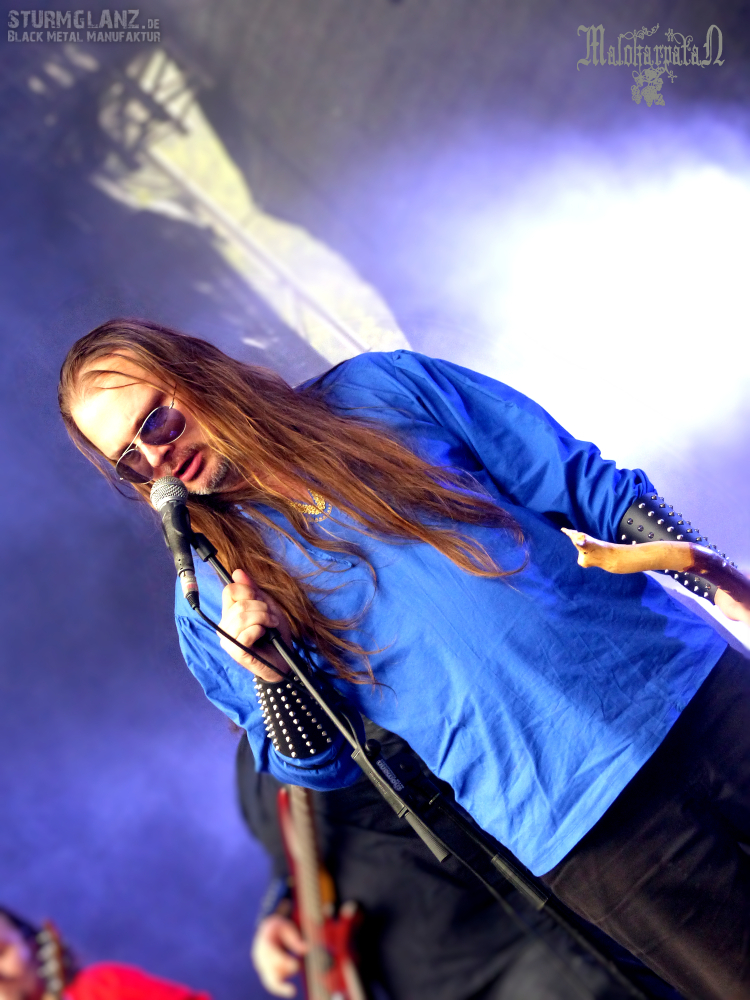 Anyway, Darragh from Invictus contacted us shortly after we put the album out and it only took a small amount of time for us to make a deal together. Unlike some other labels, he has a firm quality control and only releases bands he personally believes in. The contact with him is also on a totally informal, friendly level, which we really enjoy. I mean, we barely even started playing live and our second show was at the Unconquered Darkness festival far away in Dublin – not many people give you a chance like that. Therefore, we are all looking into the future with a big fat enthusiasm. Being an obscure band in the middle of nowhere gives you this amazing freedom to do whatever you feel like, but having such a respected label behind you and fans from places as distant as India, it just motivates you to work even harder on your output.
Anyway, Darragh from Invictus contacted us shortly after we put the album out and it only took a small amount of time for us to make a deal together. Unlike some other labels, he has a firm quality control and only releases bands he personally believes in. The contact with him is also on a totally informal, friendly level, which we really enjoy. I mean, we barely even started playing live and our second show was at the Unconquered Darkness festival far away in Dublin – not many people give you a chance like that. Therefore, we are all looking into the future with a big fat enthusiasm. Being an obscure band in the middle of nowhere gives you this amazing freedom to do whatever you feel like, but having such a respected label behind you and fans from places as distant as India, it just motivates you to work even harder on your output.
DS – In writing Stridžie dni, how was everything pieced together? How did the songs come together and what gave you the ideas for the tracks? Feel free to elaborate on anything.
A – It all went in an extremely natural and smooth way. These were all old songs I’ve kept playing on my guitar for years, except for the opening and closing tracks that were mostly new. When it comes to gathering ideas for song titles, lyrics, music, etc, it’s kinda like I don’t even know where would I start. Since music is too abstract for me to discuss in great detail, let’s just say it was a mix of influences I’ve had during the recording. Apart from the songs being influenced by classic old metal bands, I’ve also been listening to some ugly underground sounding records at the time – Nazgul’s Eyrie stuff like old Barathrum, Countess, Dawnfall and also several Lugubrum albums. This inspired me to record something filthy and vile, that would evoke feelings similar to The Return…… by Bathory. The lyrics were inspired by all sorts of Slovakian myths and legends – folktales about witches eating people, local takes on vampiric mythology, traditional primitive rituals held during wintertime to scare away unclean forces in the village, etc. One of the lyrics is sort of a moralistic warning about excessive wine drinking written by an 18th century Slovak Franciscan priest – this one we have used in a sarcastic way to celebrate our drinking habits.
DS – That connects to what I felt entirely since I have a lot of experience in old Eastern European folk belief. One of the things I found very interesting about you guys is the vocals, pieces of which reminded me of round dances in Russia, laments, things that most people don’t know about over here. I suppose this is part of a question I asked above, the vocal delivery on this album was very unique, and noticeably Slavic in the way parts are done. Deliberate or not? Talk to me about how the vocal delivery came about because it’s tough to be unique in that area these days.
DS – Hahah with the history of Eastern Europe and drinking, that makes perfect sense. Stimulating that old, Slavic mentality through alcohol. But how does it all play out live? I’ve seen some of your pictures, and you obviously have a presence in Eastern Europe now, but any plans to tour beyond those regions into other parts of the world now that you’ve got a more diverse and wide audience to appreciate what you’ve done?
A – On the contrary, I’d say that Eastern Europe is not really where we have a lot of fans. A notable exception to this rule is Poland, where we seem to have the largest fanbase so far. We are sincerely glad for that, because Polish culture is almost identical to ours in some aspects and it seems that Polish maniacs share this cultural bond and understand what we are about more than anyone in the West. But when we exclude Poland, there is this interesting paradox – most of our other fans are from non-Slavic countries. I think it might be because Eastern Europe is more interested in folk metal, brutal/technical death metal and similar stuff. At least this is definitely the case here in Slovakia – just check some random bands from our country on the Metal Archives and you’ll see. We get a lot more reactions from Germany, Scandinavia, USA, South America – those are areas where classic old school metal is still popular and also with young newcomers to the scene. It’s funny – we are so deeply rooted in Slovakian culture, yet we are a fairly atypical band for Slovakia. So far, we have played at home, in Ireland and in Germany. Next concert plans are Czech Republic (twice), Poland and again Germany. If people would like to see us in their country, feel free to contact your local promoters.
 DS – I kind of expected that with your fanbase over there. It’s interested it’s taking hold in the West, but not unusual since most Westerners have 0 knowledge about Eastern European culture, so it sounds so exotic and unusual they’re drawn to it regardless of where it comes from. Tell me a bit about the touring experience in Ireland and Germany and how that went.
DS – I kind of expected that with your fanbase over there. It’s interested it’s taking hold in the West, but not unusual since most Westerners have 0 knowledge about Eastern European culture, so it sounds so exotic and unusual they’re drawn to it regardless of where it comes from. Tell me a bit about the touring experience in Ireland and Germany and how that went.
A – Yeah, I think the exotic factor plays a role. I know it from personal experience – I’m a big fan of the album Cantofabule by the 70s prog band Phoenix from Romania, they sing in their native language about their ancestral myths, I don’t understand a word but it rules. And that’s just two countries away from my own. Playing live in Ireland and Germany – both were very different experiences. We barely just played our first gig here in Bratislava and the next one was on the opposite side of the continent, in Dublin. So naturally, we took it very seriously, were rather nervous and as a result we fucked up one song, haha. The rest of the set went more or less fine, but still, it all felt like being thrown into deep water all of a sudden. But of course, overall it was a great experience – being able to play our second ever show at an international underground festival so far from home. This would never happen if it wasn’t for Darragh from Invictus giving us a chance. There were people from Finland, Norway, Poland etc coming to us after our show, even taking photos with us, which was a surreal experience for me, since I’m not used to anything like that.
Chaos Descends in Germany was thoroughly enjoyable, even though we expected some problems since it was a summer festival. It turned out brilliant in the end – we’ve had a great sound at least on stage, for the first time in my life I could actually hear all the instruments, the sound guys were truly professional. There was a quite heavy rain during our set, but still there were several fans who came to see us and it was the most enjoyable gig I’ve played so far.
DS – I guess it makes sense you’d have more of a presence outside of your own country, where the “exotic” sound people perceive of your music in the West would be more familiar. So you sort of started to talk about it earlier, but to be more direct what are you currently working on?
A – A split EP with our Finnish comrades Demon’s Gate should be out on Invictus this autumn (October, if things work out). Our side of the split will include a little collaboration with members of the Belgian cult Lugubrum [See link provided earlier above. – Editor], so it’s almost a three-way split. Another split, this time with the Dutch Peat Metal madmen Botulistum is in the works. Then, most of all, I’d like to start recording our next full-lenght album, hopefully later this year. Some shirts and other merch is coming too, just keep following our Facebook page if anyone is interested. Thank you Stan for the interview and your support of Malokarpatan!
DS – Looking forward to your future work! Much respect for what you’ve done thus far and thanks again for spending all the time answering.
Interview Conducted by Stanley Stepanic

